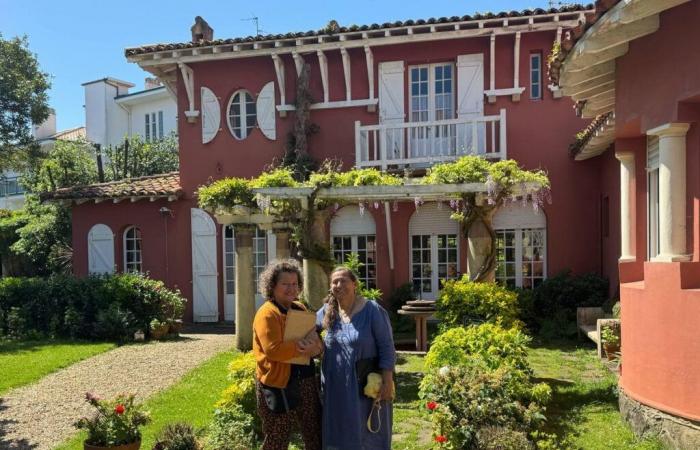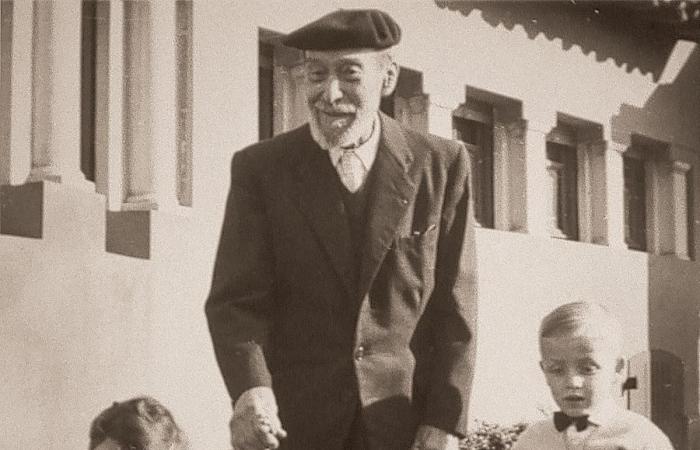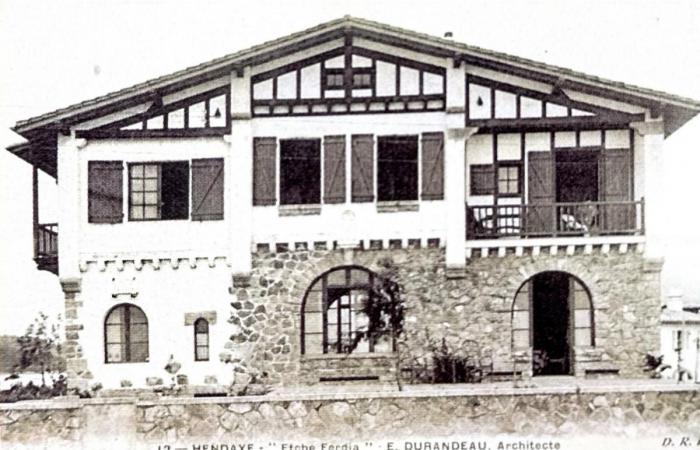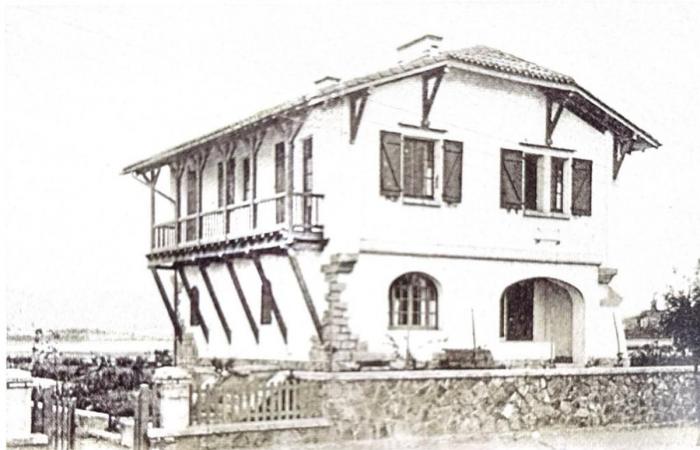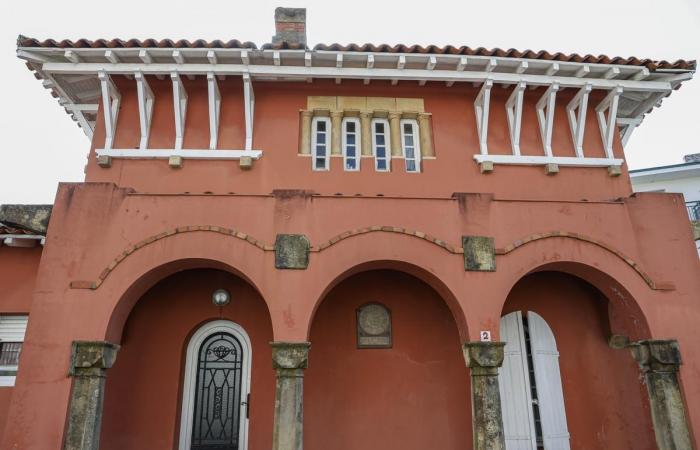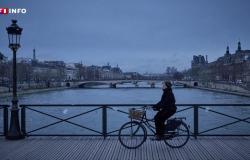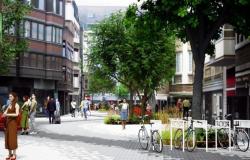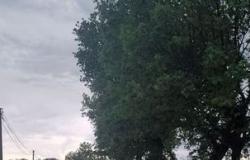IIt is one of the architects that gave their shape to Hendaye-Plage at the beginning of the XXe century. To pay tribute to Edmond Durandeau, the city of Hendaye baptized the square of the Palmiers roundabout of its name. Sixty-five years after its disappearance, the seaside district has changed. But 42 villas signed by his hand are still there. His granddaughters wanted to rekindle the memory of their grandfather by telling “South West » His career, his work, and a little of the man he was.
Edmond Durandeau was born in Angoulême in March 1878. As a child, he discovered Hendaye during holidays and falls in love. At 20, he “went up” to Paris and joined the architecture section of the School of fine Arts. He stayed there for ten years, forced to work in parallel to support his needs. It is there that he meets Henry Martinet, renowned landscape architect, that we would qualify today as a real estate developer. “His technique was to identify good students to make them work with him. He posed a label on one of the school projects of our grandfather and said that he wanted to meet him, “says Nathalie Hoarau, one of his granddaughters, herself became an architect.

Durandeau family archives
Henry Martinet then nourished great ambitions for Hendaye and his beach district. “I took over this sleeping town to make it one of the first seaside resorts on the Atlantic coast,” he said. At the time, everything was to be created: sand and dunes cover most of the site. “A wealthy clientele came to spend the summer there and wanted to build villas,” says Perrine Durandeau, the second granddaughter. This meeting marks the start of Edmond Durandeau’s career.
Nébiancque
For his end of studies project, he designed in 1907 the plans of a villa by the sea. Etche Ferdia was born, followed the following year by three other houses. The architect then settled definitively in Hendaye and developed his style: the neobasque. At the time, the landscape was dominated by Norman style constructions. “Pierre Loti (famous French writer, editor’s note) criticized the urbanization of Hendaye, in particular the establishment of styles unrelated to the region. And he praised my grandfather’s work, who chose to take an interest in Basque architecture, ”underlines Nathalie.

Book “Edmond Durandeau” by his son Jean-François Durandeau
“It is perhaps a little pretentious to say that he created the neobasque, but he participated in the first sketches. And in view of his work, we can say that he has more than rewritten ”

Book “Edmond Durandeau” by his son Jean-François Durandeau
In this neo -Basque style, Durandeau is inspired by the Labourdine facade, with its two sides and half -timings: a real reinterpretation of the traditional farm. There are tile roofs, local colors, red, green or blue, and the use of the country’s materials. He added his own touch to it, inherited from the fine arts. “He had a great knowledge of Italy, Spain and the Greek classic. He brings his ideas into it, with columns, drilling, external staircases, ”describes his granddaughter architect.
Even today, the origin of the neobasque is debated. Villa Arnaga in Cambo-les-Bains, built by Joseph-Albert Tournaire in 1903 for Edmond Rostand, seems to precede the achievements of Durandeau. But the Hendayais architect helped, in his own way, to redraw this style. “It is perhaps a little pretentious to say that he created it, but he participated in the first sketches. And in view of his work, we can say that he has rewritten it more than, ”says Perrine Durandeau.
Red house
After a few years of collaboration, the student distances himself from his master. “He did not want to follow Henry Martinet in what could be described as urban planner. His own clientele had been formed, thanks to the houses he had made and word of mouth, ”explains Perrine. After the Krach of 1929, Henry Martinet, ruined by his investments and by the financial abyss represented by the Eskualduna hotel, goes bankrupt.
“When he heard that it was said that it was Chantaco’s red, it was going crazy!” He replied: ‘No, it’s red Durandeau’ “
Edmond Durandeau then continued on his way to Hendaye, independently. In this auspicious period, only interrupted by the German occupation during the Second World War, it stands out as a figure in the local landscape. Since 1911, he has lived in the heart of the seaside district, in his family home: La Villa Maison Rouge. One of its facades has been listed in the inventory of historic monuments since 1993. Faced with Txingudi bay, the building is distinguished by its color: a red identical to that of the Golf de Chantaco. “When he heard that it was said that it was Chantaco’s red, it was going crazy!” He replied, ‘No, it’s the red Durandeau’, “recalls Nathalie.

Nicolas Mollo
A simple and open -minded man, Edmond Durandeau designs villas in Hendaye until the end of his life. Curious about the evolutions of his time, he does not hesitate to integrate concrete into his last constructions and to make his drawings evolve towards more modern forms. “He also absolutely wanted to work with local products and actors. The cross -border, he did it long before everyone else, since he brought for example from Fontarabia stones in gabare, by Bidassoa, ”adds Perrine.
War
After working on numerous buildings in Hendaye, whose theater of varieties, Edmond Durandeau imagines the extension of the war memorial to include the victims of the Second World War. A more ambitious project was envisaged, but will never see the day. A real regret for the architect. “This monument was very important to him. He had been deeply marked by the First World War. He came back collapsed, and spoke a lot of Verdun, ”says Nathalie.
By the magnitude and the singularity of his work, Edmond Durandeau continues to live in the Hendayais landscape. His heritage is transmitted within his family: his grandchildren, Christophe (disappeared a few years ago), Nathalie, Perrine and Paco, perpetuate her memory. And passion did not stop there. After his son Jean-François, then his granddaughter Nathalie, the Durandeau family now has a fourth generation of architects, with its great-granddaughter, Ana.

